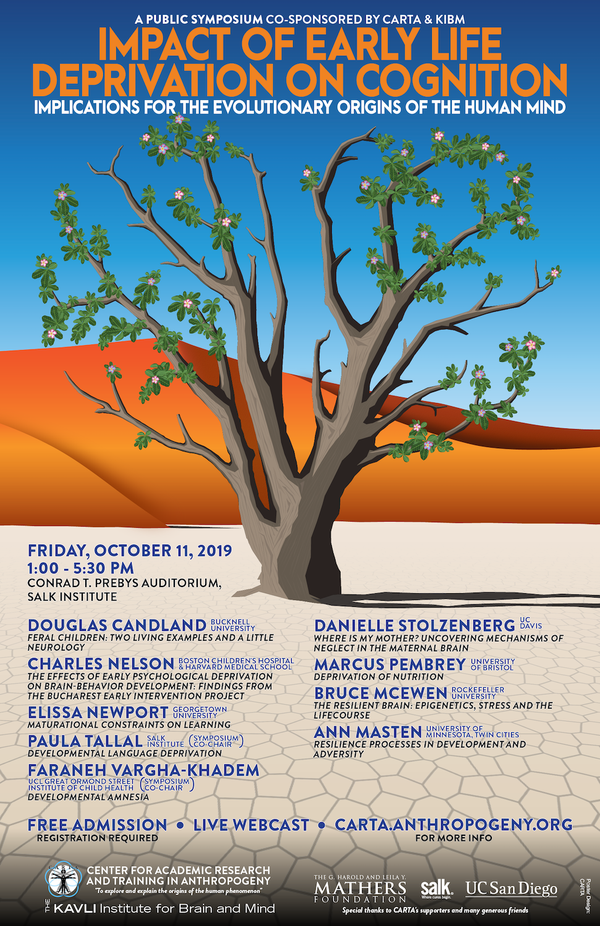
Submitted 23 September 2019 by Ingrid Benirschke-Perkins

Join the live webcast! "Impact of Early Life Deprivation on Cognition: Implications for the Evolutionary Origins of the Human Mind” is the topic of a free public symposium hosted by the UCSD/Salk Center for Academic Research & Training in Anthropogeny (CARTA) and UCSD/Kavli Institute for Brain & Mind (KIBM) on Friday, October 11th (1:00-5:30 pm Pacific), co-chaired by Paula Tallal (Salk Institute) and Faraneh Vargha-Khadem (UCL Great Ormond Street Institute of Child Health).
Unlike the case with most other animals, much of human brain development and maturation occur after birth, a process that continues into early adulthood. This unusual pattern allows for greater influences of environment and culture on the emergence of the adult mind. Ethical considerations disallow most experiments that might address the interactive contributions of nature and nurture in this process, which likely played a key role in the origins of the human species and in the evolution of distinct features of our minds. For similar reasons the relative importance of various factors cannot be easily studied, nor teased part.
This symposium will address the matter to the extent possible based on available evidence, ranging from experiments by ancient monarchs and lessons from “feral” children of various kinds, to the follow-up of Romanian orphans, etc. while addressing comparative and neurobiological issues.
Access the live webcast here on October 11: https://carta.anthropogeny.org/events/impact-early-life-deprivation-cognition-implications-evolutionary-origins-human-mind
Copyright © 2024 American Association of Biological Anthropologists.
Site programming and administration: Ed Hagen, Department of Anthropology, Washington State University